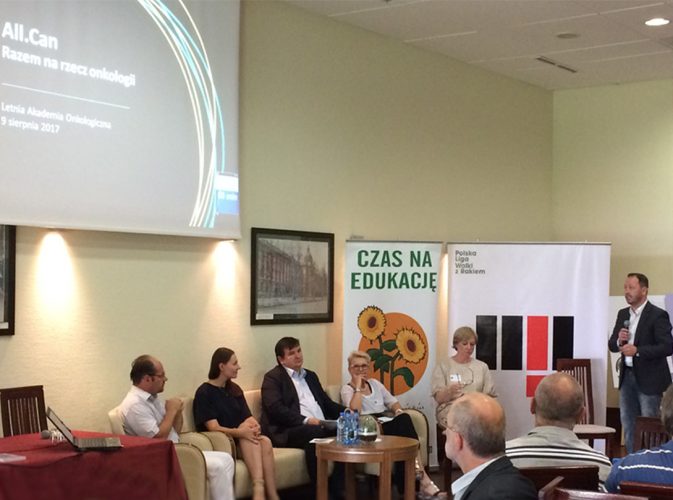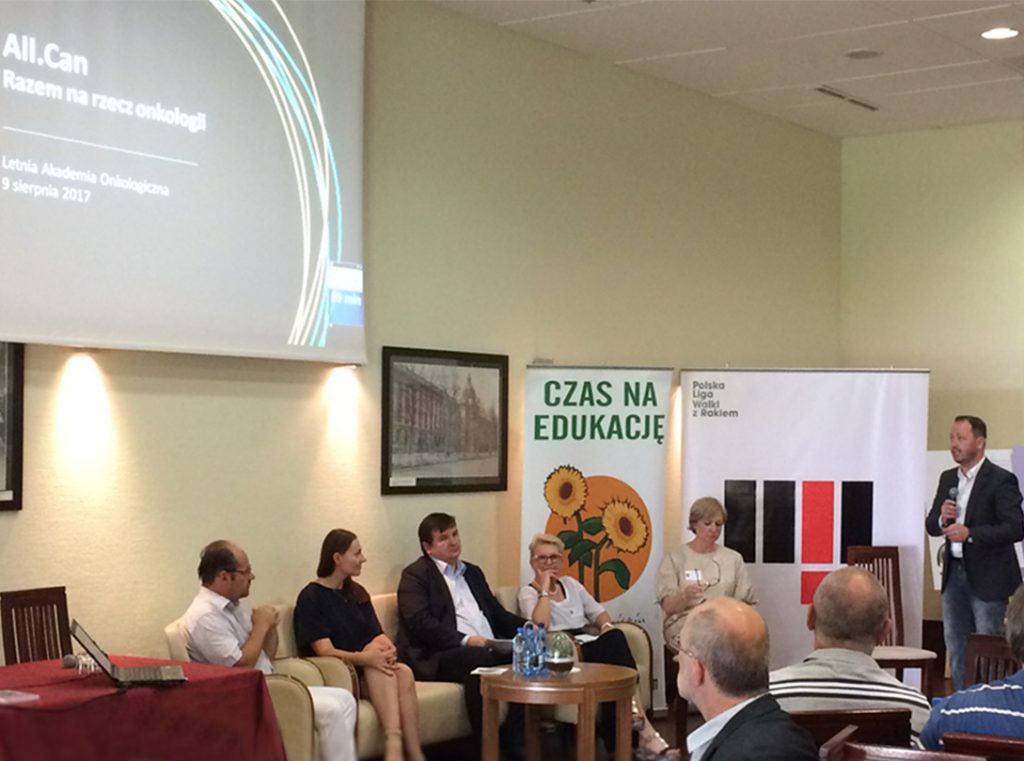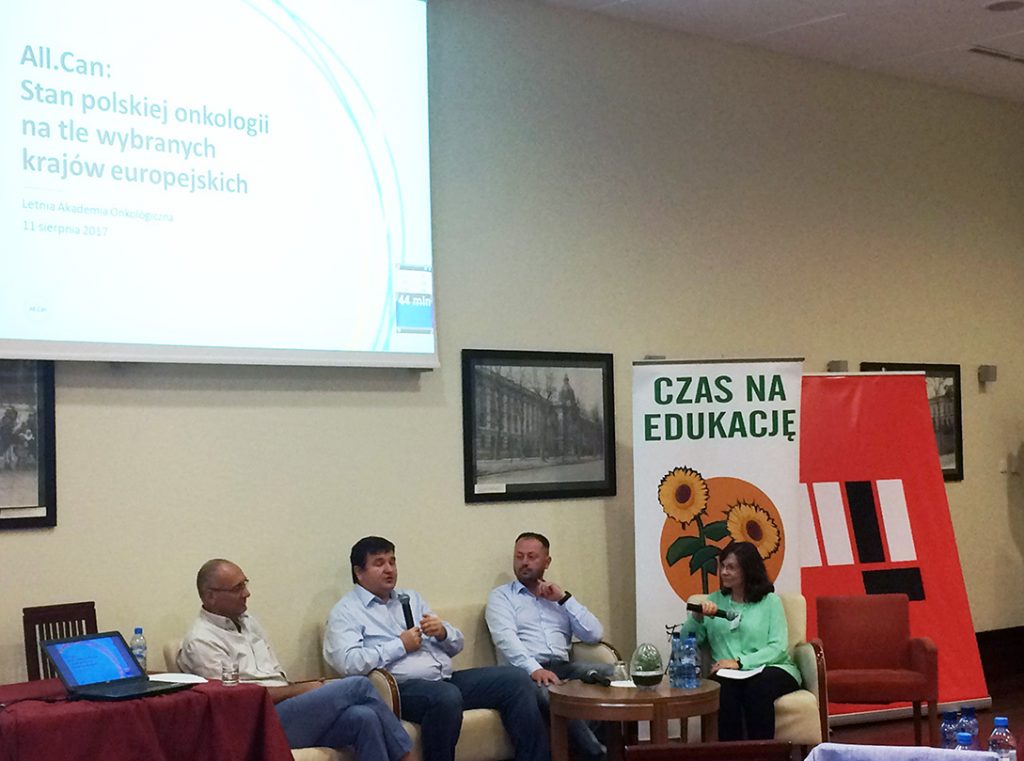
Cancer prevention and increasing access to innovative technologies were among the topics discussed in All.Can-led sessions at the 7th Summer Oncology Academy in Warsaw.
The All.Can initiative organised two panel discussions, which were dedicated to bringing forward All.Can’s recommendations to improve efficiency in cancer care. The annual event, which took place on 9–11 August 2017, brings together leading oncologists, public health experts and medical journalists from all over Poland, to discuss the main challenges and developments in cancer care.
The first panel gave recommendations on cancer prevention and screening. The invited speakers included: Szymon Chrostowski, representing the Polish Steering Group (also a member of All.Can international); Dr Marta Mańczuk, Head of the Primary Prevention Laboratory at the Institute of Oncology in Warsaw; Krystyna Wechmann, President of the Polish Cancer Patient Coalition; Dr Jerzy Gryglewicz from the Lazarski University; and Dr Adam Kozierkiewicz, a healthcare expert.

The speakers agreed that for effective prevention, it is necessary to implement the 12 recommendations of the European Code Against Cancer concerning, among others, non-smoking, regular physical activity and adequate nutrition. Dr Mańczuk underlined the importance of restoring invitations for mammography and cytological screenings, which were suspended by the Ministry of Health due to non-compliance with Poland’s rules around personal data protection. Krystyna Wechmann talked about the role of patient organisations in cancer care programming, and outlined the Coalition’s recommendations for primary and secondary prevention, while Dr Kozierkiewicz discussed the role of primary healthcare in prevention.
The second panel, led by Szymon Chrostowski, Prof. Jacek Jassem from the Gdansk Medical University and Dr Jerzy Gryglewicz, discussed the efficient allocation of resources to increase access to innovative technologies, a key focus of the All.Can initiative. Prof. Jassem drew attention to the lack of enforcement of existing regulations, such as the Reimbursement Act, where saved money is to be spent on innovative therapies, and Tobacco Law, where 0.5% of excise tax is utilised to reduce the negative effects of smoking.

In the context of rationalising allocation and improving access to modern therapies, Dr Gryglewicz sees hope in the recently published draft regulation on the allocation of the reimbursement reserve, which gives priority to medicines that do not have generic equivalents, and extend the indications (conditions making treatment or procedures advisable) required for reimbursement. According to Prof. Jassem, to accelerate access to new medicines, the national authorities should rely on the clinical analysis of the European Medicines Agency and limit its assessment only to a cost/benefit analysis of the new health technology. Concluding the debate, he said: ‘The greatest reserve of resources can be recuperated by better organising the healthcare system, as good medical procedures, even expensive ones, are much cheaper than those [that are] ineffective.’